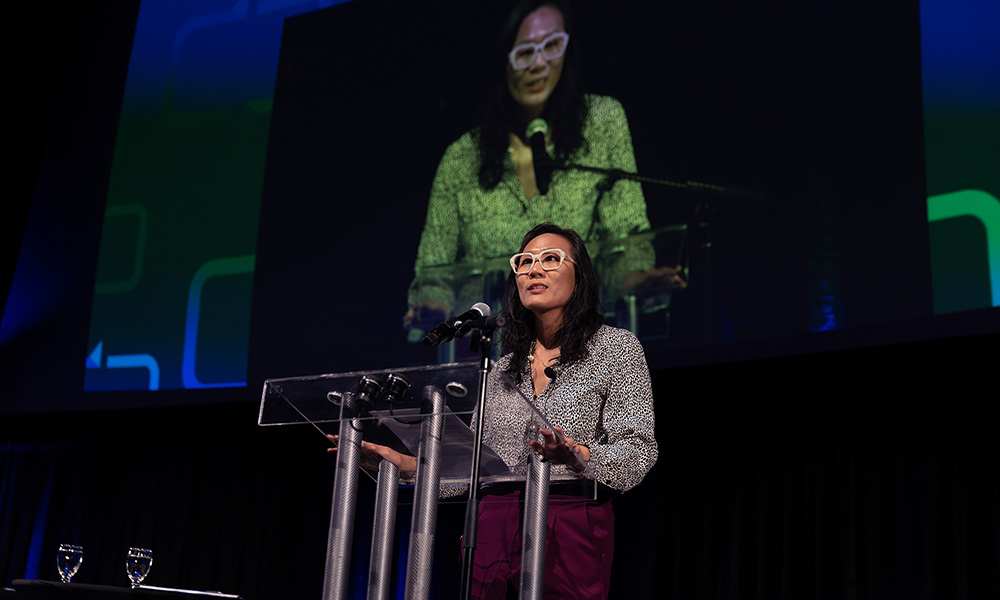
Wendy Wong, UBC Okanagan Professor of Political Science.
Every time a person opens an app, gives a thumbs up to a social media post or interacts digitally, data about them is collected and updated.
Digital data is everywhere and is constantly being modified and used to create algorithms that can impact what lands on our digital platforms. Do we have control over personal data? Should we be worried about who is collecting and using it?
And what role does artificial intelligence play in all of this?
UBC Okanagan’s Wendy H. Wong is a Professor and Principal’s Research Chair in Political Science and an expert on personal data. Her latest book, We the Data: Human Rights in the Digital Age has been shortlisted for the 2024 Lionel Gelber Prize—an international award for the best non-fiction book in international affairs written in English. The prize, issued by the Munk School of Global Affairs and Public Policy at the University of Toronto, was founded in 1989 by Canadian diplomat Lionel Gelber and seeks to deepen public debate on significant international issues.
Dr. Wong’s book, the lone Canadian selection and one of five contenders this year, explores how technology companies play a pivotal role in governing our lives by leveraging the countless amounts of personal data generated in our everyday interactions online.
While AI is now a common term and people have adapted and embraced tools like ChatGPT, changes seem to take place daily. But should people be concerned? Or accept that, even if we try to protect it, our data is being mined and AI is part now of our everyday lives?
Your book focuses on understanding how big tech companies are mining, storing and profiting from our data. Why is this so important?
We have to start understanding the role that private corporations play in the governance of our everyday lives. We interact daily with platforms that are not subject to the same responsibilities as governments. Yet, we are often more than happy to, or at least, more comfortable with, ceding access to data about us to corporations than to the state.
I think it is time we’re more skeptical about how these data are treated. This is not to say corporations are bad. But we don’t tend to think of them or hold them accountable in the same way we do governments, which must protect and enforce human rights.
Should we be concerned about how quickly AI has been integrated into education, health care and general society?
AI is a shiny new technology. And we’re trying to integrate it when we don’t understand that the human data that powers AI doesn’t go away easily—it’s sticky. Data’s stickiness affects us in our everyday activities—it’s time policymakers and technology creators reckon with how AI changes humanity through the human rights values of autonomy, dignity, equality and community. We’re all stakeholders in data, and we need to explicitly acknowledge not just how data affects us, but how we can influence data creation.
We the Data is the only Canadian book to make this list for a Canadian book prize. Is that significant?
It’s particularly nice to represent Canadian authors and Canadian scholarship. This prize is open to all English language books on international affairs, so the field is quite large. I think it’s important that views from Canada are present in debates on global politics because we have so much to offer policymakers and the public.
Were you surprised by this prestigious nomination?
You never write a book thinking it’s going to be recognized by an international jury as a contender for a major award! It took a day for me to let it sink in. It is truly a wonderful affirmation of how centrally we need to discuss human rights when we consider AI and data about human beings.